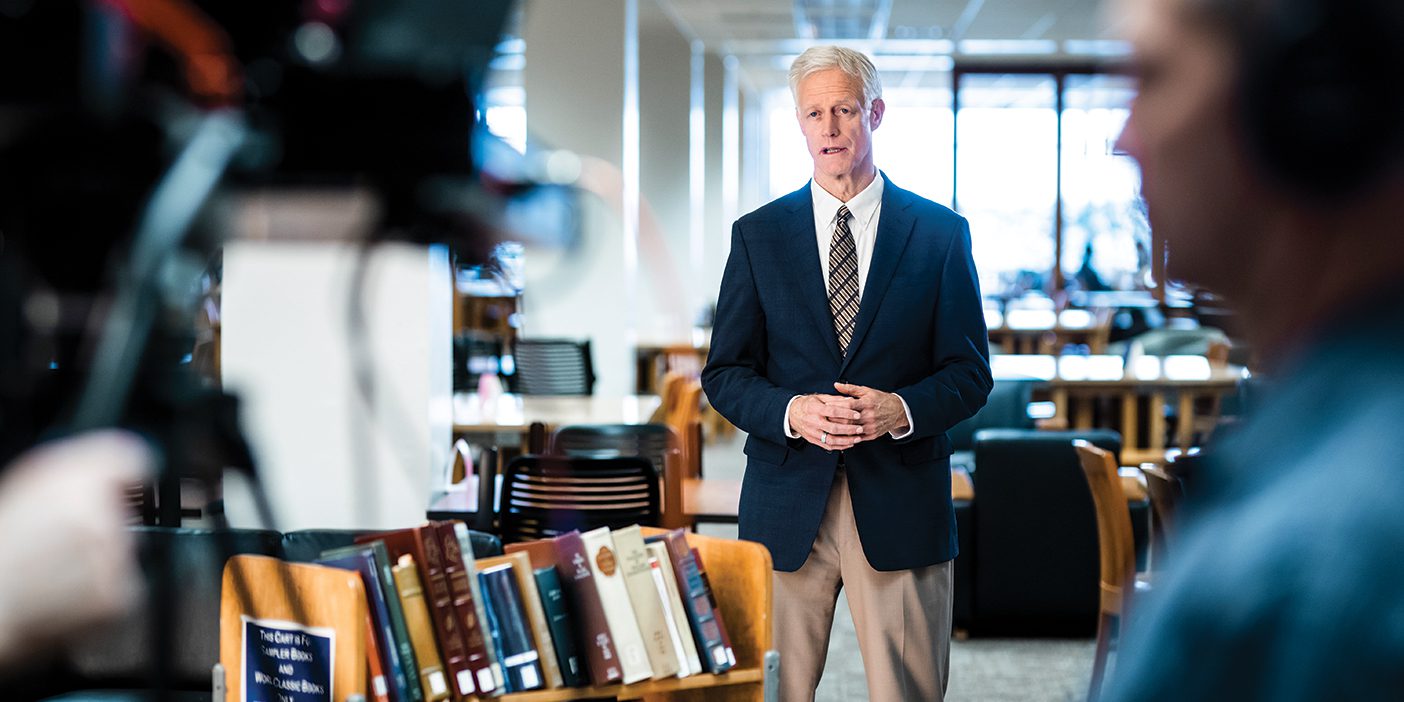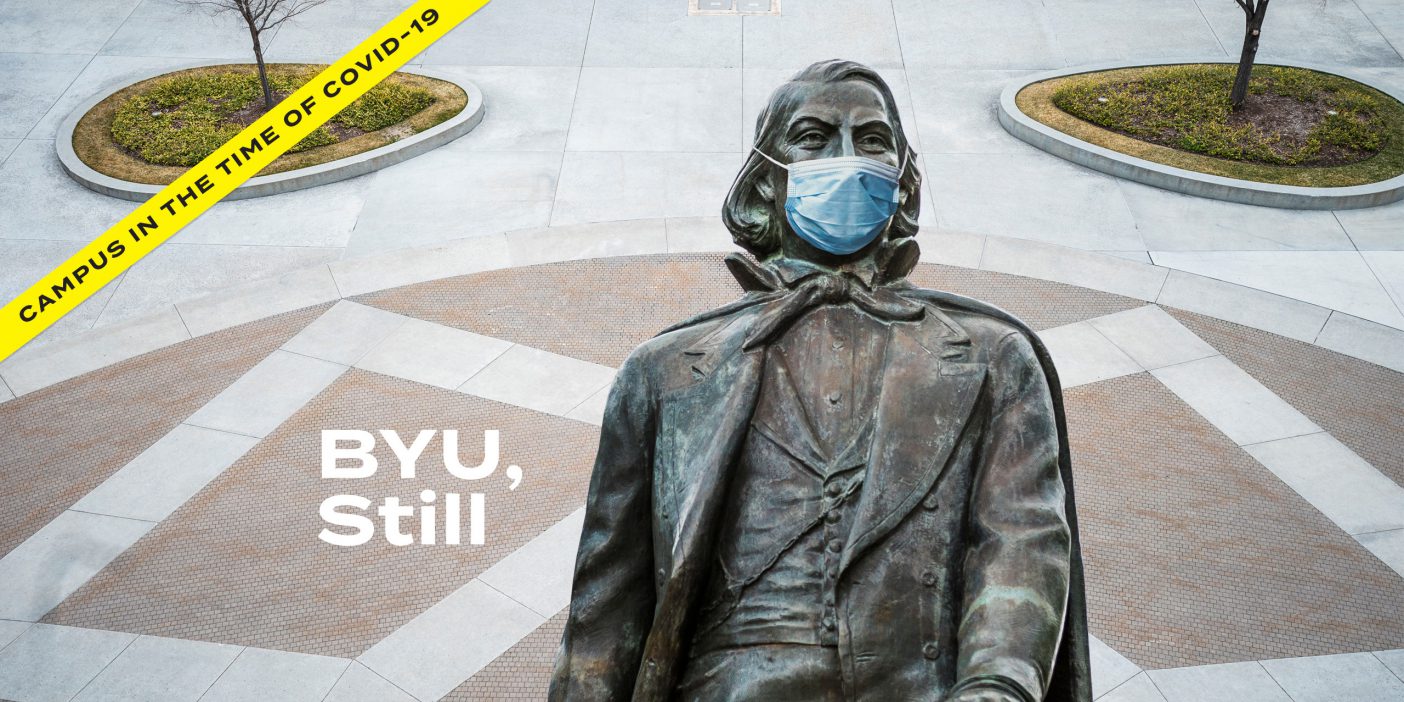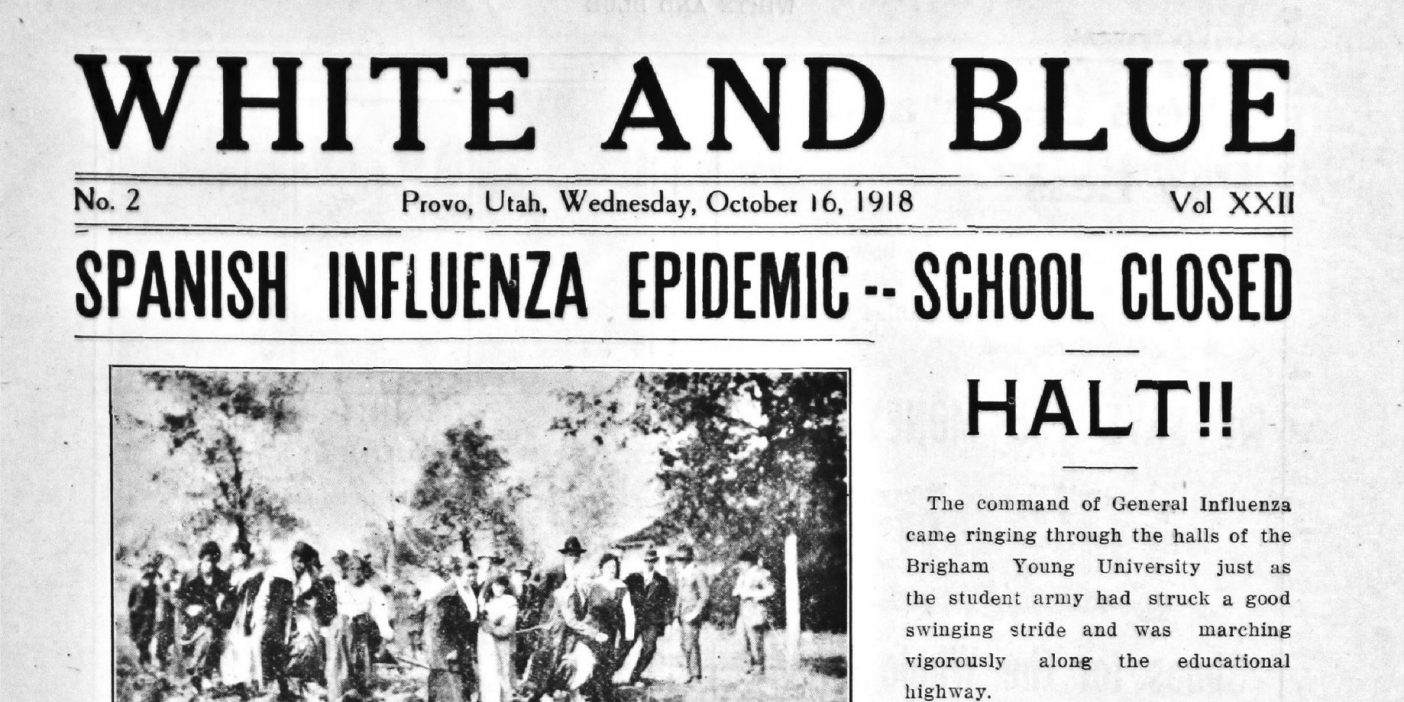A community of disciple-scholars may be even more vital in these times of physical distance.
In my devotional address at the beginning of this school year, I spoke about the importance of gathering and how coming together in a compact society enhances our education. There is something powerful about a community of disciples of Jesus Christ who view themselves not just as isolated individuals pursuing their own goals but as part of a covenant community gathered together to realize their full potential as children of God.
I gave that address on Sept. 10, 2019. Six months later, on March 11, 2020, the World Health Organization declared that COVID-19 had become a pandemic. That same day, BYU canceled in-person classes and temporarily transitioned to remote instruction. Students were encouraged to return home to complete the winter semester, and large campus gatherings were canceled. Suddenly our compact educational society—our gathering together at BYU—seemed to be torn apart.
“Joy is the key to our spiritual survival in the trying times in which we live.” —President Kevin J Worthen
If gathering is an important principle of the gospel and of education, how can we still create and enjoy the benefits of such a community in a time of physical separation? I have given BYU students three suggestions.
First, an extraordinary blessing of the BYU educational community is the opportunity to interact with remarkable faculty members—professors who are at the forefront of their fields and also rock-solid in their faith in the restored gospel of Jesus Christ. A time of physical separation need not interrupt the mentoring associations our students have with faculty members. Indeed, a community of disciple-scholars may be more vital in these times, and technology now allows us to maintain those relationships even when we are physically separated. I have invited students and faculty to reach out to each other virtually to maintain those important relationships.
Second, although students may no longer share a kitchen with roommates or attend ward prayer in the evening, their relationships with fellow students can continue to enrich their BYU experience. The BYU community—like our broader Church community—provides an important support system and gives us an opportunity for service. We should not let physical distancing diminish our support for each other—especially for those who may feel neglected or left out. We can reach out to friends online, give someone a call, share an encouraging text, enjoy a friendly laugh, and pray for each other.
Finally, we should focus on joy. I often meet with visitors to campus, many of whom are struck by the joy they feel radiating from the students. One such visitor asked me if we had “a happiness initiative.” As joy defines BYU, so joy can define our lives, even—or perhaps especially—in challenging times.

President Nelson referred to joy as “a principle that will only become more important as the tragedies and travesties around us increase,” “a principle that is key to our spiritual survival”; and in words that apply now more than ever, he said that “the joy we feel has little to do with the circumstances of our lives and everything to do with the focus of our lives” (Russell M. Nelson, “Joy and Spiritual Survival,” Ensign, November 2016).
Joy is the key to our spiritual survival in the trying times in which we live. President Nelson has invited us to experience “enduring joy”—joy that can exist even when we fail a test, feel rejected, face ridicule, or confront a global pandemic. It is a joy that does not need to wait until midterms, finals, or a pandemic is over before we feel it. We find enduring joy by focusing on Jesus Christ, who is not only “the author and finisher of our faith” (Heb. 12:2), but also the author and finisher of our joy.
We are blessed to be part of a unique gathering of God’s children at BYU. That gathering continues, though perhaps from a distance, and it includes today’s students as well as those from decades past. You are not part of this community by accident. You were gathered here by God to help you learn and develop Christlike attributes. Whatever your background, talents, challenges, or perceived weaknesses, you are a vital part of this gathering, and you are loved.












